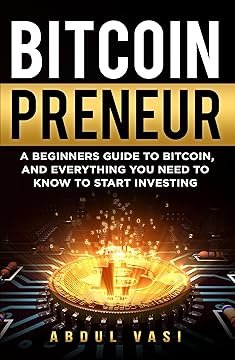Advertisement:
With over 25 years of experience as a business consultant, Abdul Vasi has helped countless brands grow and thrive. As a successful entrepreneur, tech expert, and published author, Abdul knows what it takes to succeed in today’s competitive market.
Whether you’re looking to refine your strategy, boost your brand, or drive real growth, Abdul provides tailored solutions to meet your unique needs.
Get started today and enjoy a 20% discount on your first package! Let’s work together to take your business to the next level!
If there’s one name synonymous with financial wisdom, it’s Warren Buffett. The “Oracle of Omaha” didn’t just become one of the world’s richest people by accident—he mastered the art of managing cash like a virtuoso. While many of us spend our days wondering if we can afford an overpriced latte, Buffett spends his ensuring every dollar works as hard as possible.
The good news? You don’t need billions to apply his principles. Whether you’re managing your monthly paycheck or dreaming of your first million, Buffett’s cash management strategies can guide you to a financially stable and prosperous future. Let’s dive into the lessons he’s taught the world, with a side of humor to keep things light.
Act 1: “The Cash Cushion Strategy”
Warren Buffett’s first rule of cash management is simple: always keep a cushion. The man loves cash—and not because he’s planning a shopping spree at the local mall. Cash, to Buffett, is a safety net, a shield against the unpredictable.
Imagine you’re driving on a highway with no gas stations for miles. Having a full tank of fuel is like having enough cash to handle life’s unexpected detours. Whether it’s a medical emergency, a sudden job loss, or an irresistible stock market opportunity, cash gives you options.
Lesson: Build an Emergency Fund
Buffett famously said, “Cash combined with courage in a crisis is priceless.”
Start small but aim to save at least 3-6 months of living expenses. Keep it in a separate, easily accessible account. Remember, this isn’t your vacation fund—it’s your financial parachute and an essential part of cash management.
Act 2: “Spend Like a Frugal Billionaire”
Warren Buffett could buy anything—mansions, yachts, islands—but he still lives in the modest house he purchased in 1958. Why? Because he understands the value of money better than most. Buffett doesn’t let lifestyle inflation creep into his spending, and neither should you.
Lesson: Avoid Lifestyle Inflation
It’s tempting to upgrade your life every time you get a raise, but Buffett’s approach teaches us to live well below our means. Think twice before splurging on a luxury car or the latest gadget if your old one still works. Remember, the less you spend, the more you can save and invest.
This principle is a cornerstone of effective cash management and long-term financial health.
Act 3: “Invest in Assets, Not Liabilities”
Here’s where Buffett really shines: turning cash into wealth. While most people hoard money in savings accounts that barely keep up with inflation, Buffett invests in assets that grow over time. His mantra? Buy productive assets—businesses, stocks, or real estate—that generate cash flow.
Lesson: Make Your Money Work for You
- Start with Stocks: Buffett loves stocks that pay dividends because they provide consistent cash flow. You don’t need a fortune to start investing—begin with index funds or ETFs.
- Think Long-Term: Buffett’s famous line, “Our favorite holding period is forever,” reminds us to focus on patience. Avoid get-rich-quick schemes and think like a long-term investor.
- Avoid Liabilities: Reduce unnecessary expenses like high-interest debt. Buffett doesn’t throw money at liabilities, and neither should you.
Smart investing is a crucial part of cash management because it allows your money to grow rather than sit idle.
Act 4: “The Power of Cash Reserves in Investing”
Buffett is known for holding large cash reserves, not because he’s indecisive, but because he’s strategic. During market downturns, he uses this cash to pounce on undervalued opportunities. Think of it as keeping your powder dry—when others panic, you’re ready to seize the moment.
Lesson: Keep Cash for Opportunities
Set aside money specifically for investment opportunities. When the market takes a dip (as it inevitably will), you’ll have the resources to buy assets at a discount. As Buffett says, “Be fearful when others are greedy, and greedy when others are fearful.”
Maintaining cash reserves is a hallmark of disciplined cash management.
Act 5: “The Budgeting Buffett Way”
Buffett’s budgeting philosophy isn’t about penny-pinching—it’s about being intentional with your money. He prioritizes value over cost, ensuring every dollar is spent or invested wisely.
Lesson: Prioritize What Matters
- Create a Value-Based Budget: Buffett once said, “Do not save what is left after spending, but spend what is left after saving.” Allocate your income first to savings and investments, then live off the rest.
- Track Your Expenses: Even Buffett keeps a close eye on where his money goes. Use apps or spreadsheets to track your spending and identify areas to cut back.
- Say No to Impulse Buys: Ask yourself, “Would Warren Buffett buy this?” before making non-essential purchases.
A budget isn’t just a plan—it’s a key tool for effective cash management.
Act 6: “The Compound Interest Game”
If there’s one principle Buffett swears by, it’s the magic of compounding. He started investing at 11 years old, allowing time and compounding to do the heavy lifting. The earlier you start, the greater the payoff.
Lesson: Start Investing Early
- Time Is Your Ally: Even small investments grow exponentially over decades. Start today, even if it’s just a few hundred rupees.
- Reinvest Your Returns: Like Buffett, reinvest dividends and profits to maximize growth.
- Be Patient: Compounding doesn’t make you rich overnight, but it’s one of the surest paths to wealth over time.
Harnessing compounding is one of the most powerful strategies in Buffett’s cash management playbook.
The Buffett Cash Management Checklist
- Build an Emergency Fund
Save 3-6 months of living expenses for unexpected situations. - Live Below Your Means
Resist the urge to upgrade your lifestyle every time your income increases. - Invest in Productive Assets
Focus on stocks, businesses, or real estate that generate cash flow. - Keep Cash Reserves
Be prepared for investment opportunities during market downturns. - Create a Value-Based Budget
Save first, spend later. Prioritize value over cost. - Start Early and Stay Consistent
Let time and compounding work their magic on your investments.
The Don’ts of Cash Management
- Don’t Neglect an Emergency Fund
Without one, a financial crisis could derail your long-term goals. - Don’t Spend Beyond Your Means
Avoid lifestyle inflation and unnecessary debt. - Don’t Hoard Cash
Invest it in assets that grow over time. - Don’t Try to Time the Market
Focus on long-term investments rather than short-term gains. - Don’t Ignore the Power of Patience
Compounding takes time, but it’s worth the wait.
Final Thoughts: Build Wealth the Buffett Way
Warren Buffett’s approach to cash management isn’t flashy, but it works. His philosophy boils down to simple, timeless principles: save wisely, invest strategically, and always think long-term.
You don’t need millions to adopt his methods—just discipline and a willingness to prioritize your financial future. So, the next time you’re tempted to splurge on something you don’t need, ask yourself: What would Warren do?
Start small, stay consistent, and let Buffett’s cash management strategies guide you toward a life of financial freedom. After all, as the man himself said, “Someone’s sitting in the shade today because someone planted a tree a long time ago.” Now, go plant your tree.




